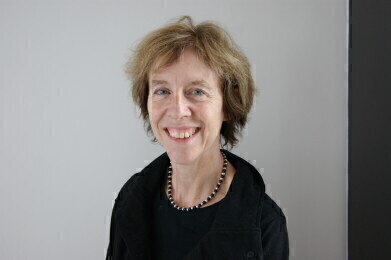-
 Professor Fiona Watt
Professor Fiona Watt
News
Skincells Offer Hope for Wound Repair
Feb 05 2014
Scientists at King’s College London have identified the unique properties of two different types of cells, known as fibroblasts, in the skin – one required for hair growth and the other responsible for repairing skin wounds. The research could pave the way for treatments aimed at repairing injured skin and reducing the impact of ageing on skin function.
Found in the connective tissue of the body’s organs, where they produce proteins such as collagen the recent study* indicates that there are at least two distinct types of fibroblasts in the skin: those in the upper layer of connective tissue, which are required for the formation of hair follicles and those in the lower layer, which are responsible for making most of the skin’s collagen fibres and for the initial wave of repair of damaged skin.
The study found that the quantity of these fibroblasts can be increased by signals from the overlying epidermis and that an increase in fibroblasts in the upper layer of the skin results in hair follicles forming during wound healing. This could potentially lead to treatments aimed at reducing scarring.
Professor Fiona Watt, lead author and Director of the Centre for Stem Cells and Regenerative Medicine at King’s College London, said: ‘Changes to the thickness and compostion of the skin as we age mean that older skin is more prone to injury and takes longer to heal. It is possible that this reflects a loss of upper dermal fibroblasts and therefore it may be possible to restore the skin’s elasticity by finding ways to stimulate those cells to grow. Such an approach might also stimulate hair growth and reduce scarring.”
Published in Nature
Digital Edition
Lab Asia Dec 2025
December 2025
Chromatography Articles- Cutting-edge sample preparation tools help laboratories to stay ahead of the curveMass Spectrometry & Spectroscopy Articles- Unlocking the complexity of metabolomics: Pushi...
View all digital editions
Events
Jan 21 2026 Tokyo, Japan
Jan 28 2026 Tokyo, Japan
Jan 29 2026 New Delhi, India
Feb 07 2026 Boston, MA, USA
Asia Pharma Expo/Asia Lab Expo
Feb 12 2026 Dhaka, Bangladesh


















